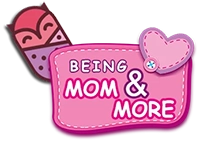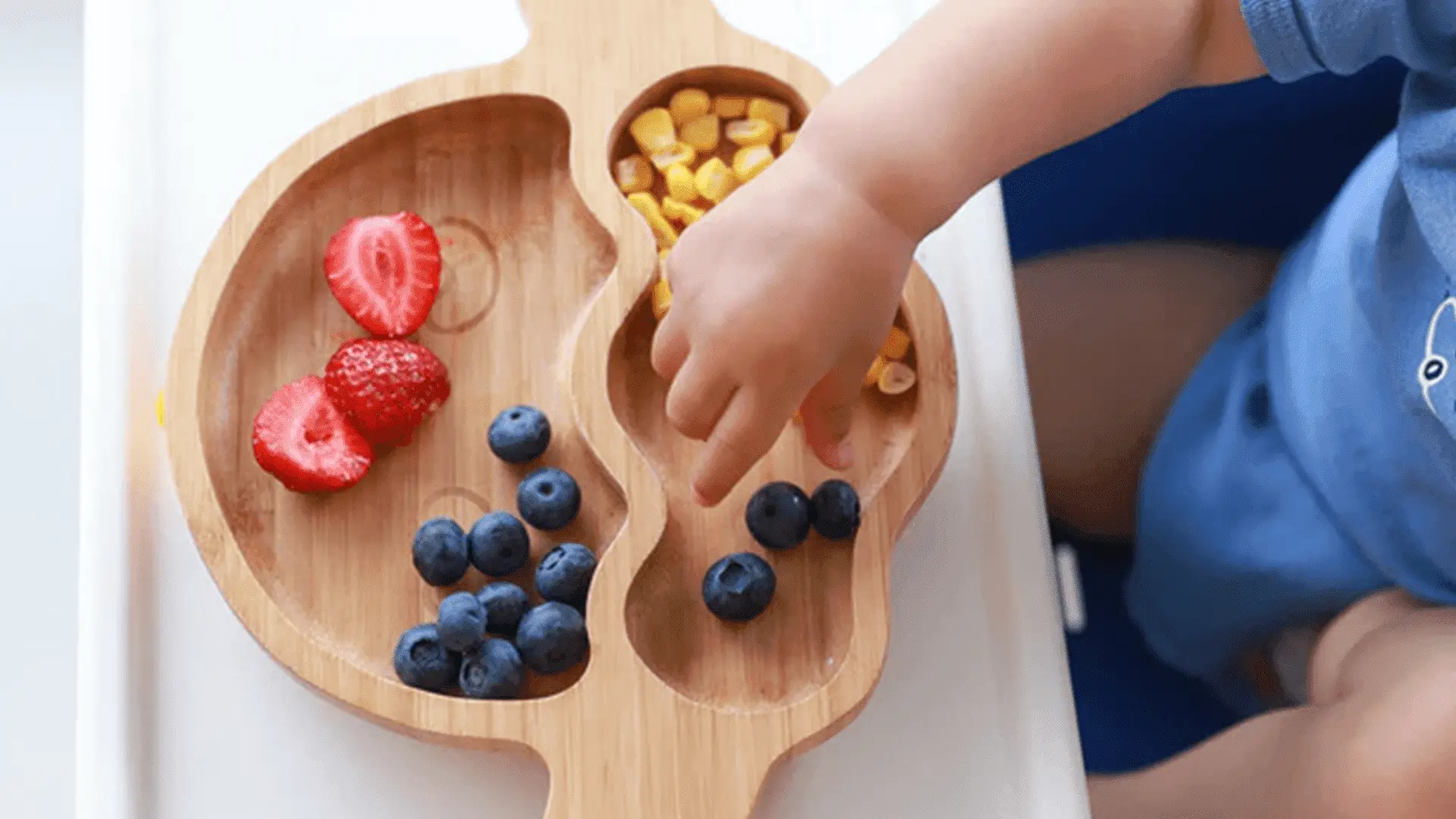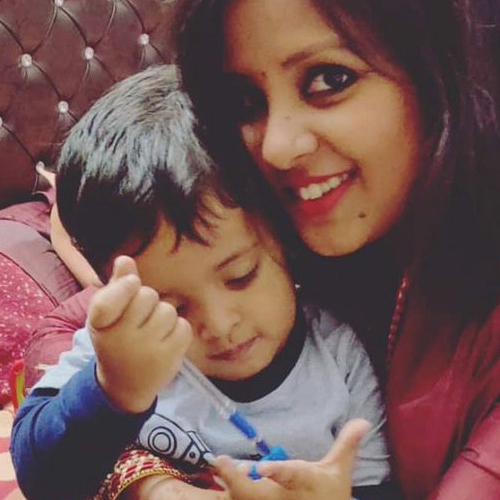Being a mother, I know that every mother’s dream is a child who eats blissfully and effortlessly. Sadly, this fantasy is a reality for a few.
Your child can be very difficult to deal with when it comes to food, ranging from being obsessed with one flavour and refusing to eat anything else to not eating enough. Trust me, I’ve been through the same and am still coping in some instances. However, we all have to remember as moms that picky eating is a normal part of a child’s development.
Even though it might seem difficult, you can win the battle if you recognize the source of the fuss and find a way to get past it.
All you will need for the journey is a lot of patience, persistence, and a few strategies, and you can help your fussy eater develop healthy eating habits.
1. Picky Eating is Just a Phase
Picky eating is a normal developmental phase that most toddlers go through. It’s characterized by a reluctance to try new foods, a preference for certain textures and flavours, and a tendency to eat very small amounts.
Picky eating can be frustrating for parents, but it’s important to remember that it’s a temporary phase and most children outgrow it by the time they reach school age.
2. Why Fussy, be Friendly
Fussy eating is really a bad habit because it will surely make the child deficient and weak at this growing age. The indicators of fussiness can vary from newborn to toddler.
It frequently happens as a result of not receiving enough attention. When eating, babies that feel neglected by their parents may misbehave to seek their parents’ attention.
Playing with your kid during the day can help break this habit of demanding attention at meals or if possible feed your child yourself and talk to them in between.
“You will see that difference while they will shower love in agreeing to your words and may not being picky for a start.”
3. Break The Habit Not the Bond
Baby fussiness is not simply caused by feeling abandoned. According to studies, fussy eating is not caused by any one pattern or factor.
Some infants may reject meals out of pure dislike for the flavour. It will take them far later in life to adjust to flavours they do not enjoy.
Others can struggle to eat certain foods because of a health condition. The first step in modifying your baby’s picky eating habits is to determine the cause, and for this, you can make him/her try different foods of similar flavours and try to find the real cause.
4. Forcing Results Fearing
When a baby isn’t eating well, force-feeding is most likely the first instinctive step to make sure they eat and don’t jump onto other meal schedules, and I have done that too.
But through my experience, I can definitely say that this can worsen the problem rather than make it better.
Try to avoid being forced to feed. Try distracting him/her with a favorite toy, or a place he/she likes sitting more than usual, break the ice by hugging if you’ve been busy since morning and not communicated enough or may be announcing food with something your kid would be excited to eat. These are the ways that will help initially.
5. Experiment With Flavours
Baby’s taste buds start developing once they begin eating solid foods, and at this time, it is very normal for kids to be choosy about what they eat.
So don’t be afraid to experiment with different flavours. Prepare healthy meals for your picky eater.
For fresh flavour profiles, try heating and pureeing various fruits and vegetables. Until you are sure your kid is not sensitive to any of them, make a note to avoid combining foods.
Children learn by example, so it’s important to model healthy eating habits for your child. Make sure you’re eating a variety of healthy foods in front of your child, and try to avoid negative comments about certain foods or restrictive eating behaviours.
Your child is more likely to try new foods if they see you enjoying them as well.
As a parent, you need to check if the baby’s refusal to eat is frequently caused by health concerns or not. Because at this age, teething is a common problem in babies younger than 12 months to toddlers aging 3 years that leads to fussy eating.
Check your baby’s lips and throat for infections if they have a difficult time eating. Babies that are ill may behave pickily, which can result in infections.
It takes time for babies to get used to new flavours. Before introducing another food, give your kid some time to get used to the previous one.
This is significant in terms of health as well. One new food at a time is best for spotting potential allergic responses and you will get time to manage if there are any.
9. Keep a Tab on your Diet Too
From my experience, I can ensure you can view solid foods as a supplement to breastfeeding during the first several months and not as a substitute.
Because of this, the first year of a baby’s life is sometimes referred to as the complementary food period.
You should also examine your nutrition if your infant is fussy about his food, because as mothers, we cannot compromise our kids’ health, so they need breastmilk too until they develop better eating habits.
10. Don’t Be Strict. Plan it!
When kids are not eating, many mothers use threats and ultimatums. Being a mother, that is the most guessable thing for kids. They know when you are faking it.
Because it is normal for you to state that you cannot stand up till your meal is finished. However, this can further annoy young brains and they feel more distracted by food. Be strong but not dominating with your baby.
It’s normal human behaviour to dislike the things that are being imposed. Allow your child to select one or two foods when they are hungry.
When given food on demand and of their choice, a baby is less likely to be fussy than when forced to eat.
12. Eating With Your Child
Your toddler may feel like doing a laborious task when fed, and it is tempting you to say, “I’ll eat later after the baby has finished.”
However, eating with your child may inspire him or her to do so as well. Additionally, It also reduces their need for attention.
13. Create A Routine. Not the Urgency
They are kids; their brain wiring is by routine and not by all of a sudden instruction. although they may create a sudden need on their own. So, it might not be the most efficient method to feed your toddler to bring a dish in front of them at random times. Most of the time, your infant will ignore the meal and become preoccupied with something else.
Establishing a schedule for mealtimes may help you deal with a picky eater. Your kid will accept solid foods more as he or she becomes familiar with the routine.
Your toddler’s stomach is small, like the size of your fist. It is crucial to understand that portion sizes will vary between you and your kid.
Fussy eaters frequently push food away because their stomachs can only process a certain amount of food at once. So, feed your kids little by little and make sure that all of their meals are healthy.
You might not be aware of it, but when you are stressed out, your baby also feels the tension.
A fussy eater will typically outgrow this stage and start to like a variety of foods.
There is, therefore, no genuine reason to worry too much. Your infant will relax and be more open to feeding if you are relaxed during mealtimes.
Remember:
Consult your pediatrician if you have questions about your child’s nutrition. They can offer advice and ensure that your child is receiving all the nutrients required for growth and development.
Additionally, keep in mind that toddlers who are picky eaters are typically in natural developmental stages. Try your best to gently lead them in the direction of a nutritious diet with your love and care.

























































Leave a Comment